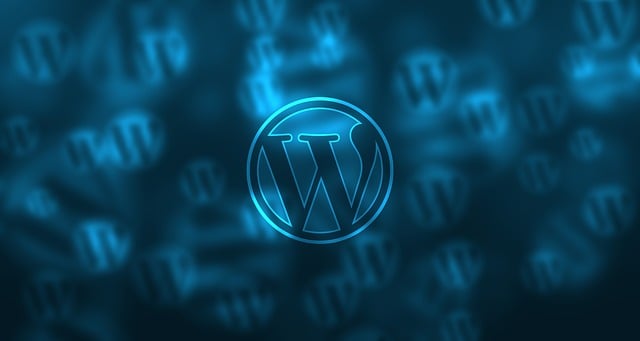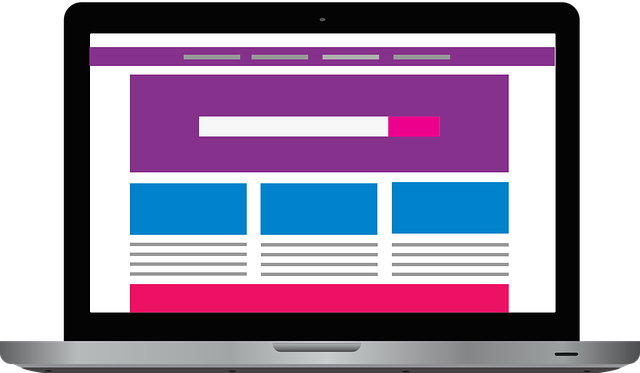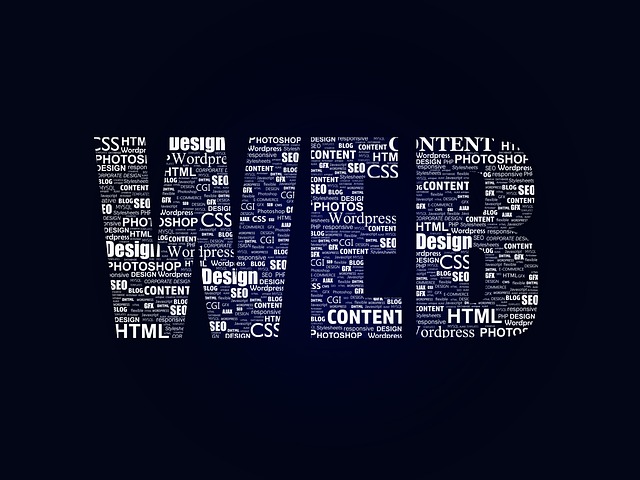Custom web design for e-commerce platforms offers significant advantages over generic solutions by providing full control over site elements and aligning with brand identity, target audience, and marketing strategies. This approach enhances user experiences, improves conversion rates, and drives customer loyalty through personalized features like recommendations and seamless payment gateways. Custom design supports future growth with adaptability to changing business demands, while the right technology stack ensures high traffic handling and secure transactions. In a competitive landscape, custom web design fosters engagement through intuitive navigation, responsive layouts, and advanced functionalities, differentiating online stores and attracting new/repeat customers. Regular maintenance is crucial for optimal performance, security, and long-term success.
In today’s digital landscape, a custom e-commerce website isn’t just a luxury—it’s a necessity for businesses aiming to thrive online. Understanding and leveraging the power of custom web design can significantly enhance user experience, drive sales growth, and foster brand loyalty. This comprehensive guide delves into the intricacies of building successful custom e-commerce sites, covering everything from basic concepts to advanced strategies like UX optimization, technology choices, feature integration, and long-term maintenance. By exploring these aspects, businesses can unlock the full potential of their online stores through tailored solutions that set them apart in a competitive market.
Understanding Custom E-commerce Websites: The Basics

Custom e-commerce websites are more than just online stores; they’re tailored digital experiences designed to reflect a brand’s unique identity and serve its specific business needs. Unlike generic, off-the-shelf solutions, custom web design involves building a site from scratch, allowing for complete control over every element—from the user interface and functionality to integrations with third-party services. This personalized approach ensures that the website seamlessly aligns with the brand’s vision, target audience, and marketing strategies.
By investing in a custom e-commerce website, businesses gain competitive advantages through enhanced user experiences, improved conversion rates, and increased customer satisfaction. Skilled developers can incorporate advanced features like personalized product recommendations, seamless payment gateways, and robust inventory management systems, creating an engaging shopping journey that fosters loyalty and drives sales. Custom web design also facilitates future growth by providing a flexible platform adaptable to evolving business demands.
Benefits of a Custom Web Design for Your Online Store

A custom web design for your e-commerce store offers numerous advantages that go beyond aesthetics. It allows for a tailored user experience, ensuring your website seamlessly aligns with your brand identity and business goals. With a bespoke approach, every element from layout to functionality can be optimized to engage and convert visitors into loyal customers.
Unlike generic templates, custom web design provides flexibility to incorporate unique features such as personalized product recommendations, advanced search filters, or interactive elements that enhance user interaction. This level of customization improves loading speeds, mobile responsiveness, and SEO performance, ultimately driving higher sales and better conversion rates for your online store.
Key Elements of Successful Custom E-commerce Website Development

Creating a successful custom e-commerce website involves several key elements that go beyond aesthetics. First, custom web design should prioritize user experience (UX), ensuring intuitive navigation, fast loading times, and seamless mobile responsiveness. A well-designed site guides users through the buying process effortlessly, boosting conversion rates. Incorporate high-quality visuals, clear product descriptions, and user reviews to build trust and enhance engagement.
Functionality is equally crucial. Integrate robust e-commerce features such as secure payment gateways, inventory management tools, and advanced search capabilities. Customizable options like personalized recommendations, customer account management, and efficient order tracking further elevate the shopping experience. Regular updates and optimization based on analytics data are essential to keep the site competitive and aligned with evolving consumer preferences.
Choosing the Right Technology Stack for Your Custom Platform

When crafting a custom e-commerce website, selecting the appropriate technology stack is paramount to ensuring its success and scalability. The right tools can empower your platform to handle high traffic, process complex transactions securely, and offer an immersive user experience tailored to your brand. A robust tech stack might include modern programming languages like JavaScript (with frameworks such as React or Angular), Python (Django or Flask), or Ruby on Rails for backend development, coupled with a database management system like MySQL, PostgreSQL, or MongoDB.
For front-end design, embracing responsive web design principles and leveraging tools like HTML5, CSS3, and modern CSS preprocessors can create an engaging, visually appealing interface accessible across various devices. Incorporating custom web design elements, such as interactive features, animations, and personalized layouts, further enhances user engagement and contributes to a distinctive brand identity. Ultimately, the chosen technology stack should align with your business goals, target audience, and future growth aspirations.
User Experience (UX) Optimization in Custom E-commerce Sites

In the realm of custom e-commerce websites, User Experience (UX) optimization is a game changer. A well-designed UX not only enhances navigation but also encourages user engagement and boosts conversions. Through custom web design, businesses can create intuitive interfaces that cater to their target audience’s needs, ensuring every click and scroll contributes to a seamless shopping journey. By incorporating user-friendly features like clear product categorization, responsive layouts for various devices, and streamlined checkout processes, e-commerce sites become more accessible and appealing.
Custom web design also allows for personalized experiences, leveraging data analytics to offer tailored recommendations and targeted content. This level of customization fosters trust and loyalty among customers, making them more likely to return. Moreover, UX optimization ensures that the site’s performance is optimized, leading to faster loading times and reduced bounce rates—crucial factors in maintaining visitors’ interest and improving overall website efficiency.
Integrating Advanced Features and Functionality

Custom e-commerce websites stand out in a crowded digital market thanks to their tailored features and unique user experiences. Integrating advanced functionalities such as personalized product recommendations, intuitive search filters, and real-time inventory updates not only enhances customer engagement but also boosts sales. These elements are key components of a successful online store, ensuring visitors have a seamless shopping journey.
A dedicated custom web design approach allows for the implementation of innovative solutions like interactive content, gamified checkout processes, and dynamic pricing models. Such integrations cater to diverse consumer preferences, fostering trust and encouraging repeat business. By prioritizing advanced features, e-commerce platforms can differentiate themselves from competitors, captivating both existing customers and attracting new ones.
Maintenance, Security, and Scalability: Ensuring Longevity

Custom e-commerce websites require ongoing maintenance, which is a crucial aspect often overlooked by business owners. Regular updates, bug fixes, and security patches are essential to keep your site running smoothly and protect customer data. A well-designed custom web design should include a robust maintenance plan that ensures timely updates, backups, and monitoring for any potential issues. This proactive approach prevents downtime and enhances user experience.
Security is another vital consideration in e-commerce. With the ever-evolving landscape of cyber threats, protecting sensitive customer information is paramount. Custom web design experts should implement industry-leading security measures, such as SSL certificates, firewalls, and regular security audits. These strategies safeguard your website and customers’ data, fostering trust and ensuring long-term success in an increasingly digital marketplace.
